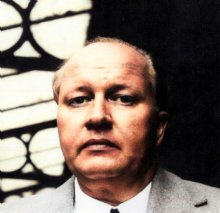Introduction
"The Far Field" is a collection of rhymes created by American poet Theodore Roethke in 1964, which was published posthumously after his death. This collection won Roethke the Pulitzer Prize for Poetry in 1965. The rhymes in "The Far Field" share a range of motifs, including love, fatality, and the marvel of the environment. The poet's meditations on these subjects reveal understandings into the human condition and also the beauty of everyday life. Roethke is known for his introspective strategy to verse and also his ability to catch moments of deep feeling and also internal turmoil, usually bring into play his personal experiences.
Structure and also Style
"The Far Field" consists of 21 rhymes divided right into 3 different areas. This structure supplies a sense of continuity as well as progression throughout the collection. The tone of the poems changes between sad and congratulatory, mirroring the poet's exploration of different aspects of presence. The language of the rhymes is identified by its vibrant imagery, use metaphor, and also interest to the sensory elements of experience.
Roethke was influenced by the Romantic poets, especially William Wordsworth, and also their emphasis on the marvels of nature, which in turn affected his verse. "The Far Field" includes a wide range of images stimulating the charm of the natural world, which is often utilized as a way to check out the poet's inner psychological landscape. The poems frequently draw connections in between male and nature, suggesting a deep interdependence as well as spiritual affinity.
Styles
Among the primary themes in "The Far Field" is the flow of time as well as the fleeting nature of life, which the poet discovers with various metaphors. Roethke presents the concept that life is short-term, and also we need to locate definition and charm in the present moment. As an example, in the poem "Sequence, Sometimes Metaphysical", Roethke composes, "Nothing remains not even transform,/ That can weary of itself". The recognition of life's brevity in these lines offers to emphasize the importance of embracing the special top qualities of each moment.
Death is another noticeable style in the collection, as Roethke faces the integral mortality of all living points. In the rhyme "The Far Field", which works as the collection's title rhyme, Roethke addresses his very own impending fatality, contemplating the appeal of nature as he contemplates his ultimate death. The poem concludes on a note of approval and peace, mentioning, "And I, a shell of lots of shapes and thoughts,/ And those, my dissolution manifest,/ Know that the clod get into th'imbodied ghost,/ The far field, the longed-for place of remainder".
Love as well as connections additionally play a substantial role in "The Far Field". Roethke brings into play his very own experiences in his expedition of love, disclosing both its power as well as its capacity for discomfort. In the poem "Elegy for Jane", Roethke mourns the loss of a student that died unfortunately, and he reveals his deep love for her through numerous natural pictures, such as the wren as well as the slim gold tree.
Nature as well as Spirituality
Roethke's deep appreciation for nature appears throughout "The Far Field", and also his consideration of the natural world usually causes a sense of spiritual link. In poems like "The Lost Son" and also "The Far Field", Roethke embraces the suggestion that in fully experiencing nature, one can discover solace, wisdom and also even a feeling of the divine. The poem "North American Sequence" particularly highlights this connection, as the poet is struck by the extensive elegance of the landscape, which leads him to a feeling of unity with the environment and also a feeling of transcendence.
Final thought
Theodore Roethke's "The Far Field" is an extensive expedition of life, death, love, and the human link to nature. With magnificent images as well as contemplative understandings, the poems in this collection expose the beauty and discomfort fundamental to presence, offering visitors a glance right into the poet's own emotional landscape as well as supplying an opportunity for reflection upon the experiences that form our lives. As a testament to the enduring power of verse, "The Far Field" highlights the capability of art to capture the significance of the human problem and also provide solace, even in the face of life's most tough minutes.
The Far Field
A posthumous collection of Roethke's poems, assembled by his wife and literary executor Beatrice Roethke
Author: Theodore Roethke
 Theodore Roethke, a prominent American poet born in Saginaw, Michigan, shaped by nature, family, and personal struggles.
Theodore Roethke, a prominent American poet born in Saginaw, Michigan, shaped by nature, family, and personal struggles.
More about Theodore Roethke
 Theodore Roethke, a prominent American poet born in Saginaw, Michigan, shaped by nature, family, and personal struggles.
Theodore Roethke, a prominent American poet born in Saginaw, Michigan, shaped by nature, family, and personal struggles.